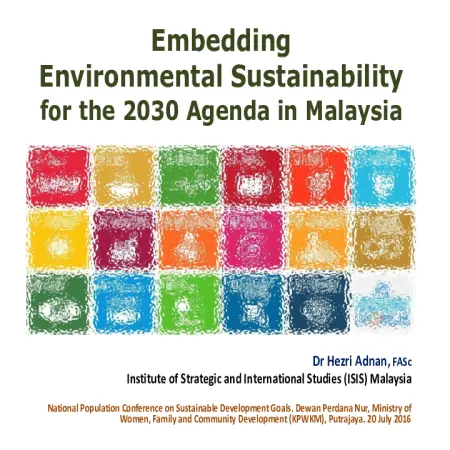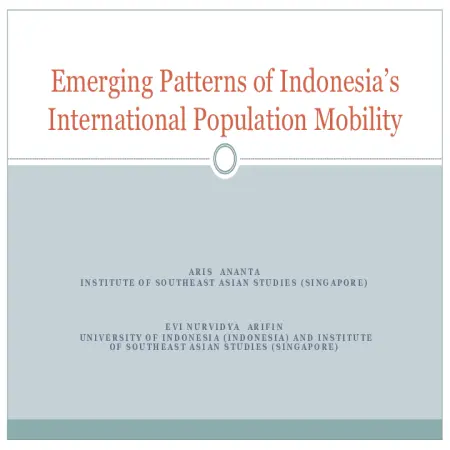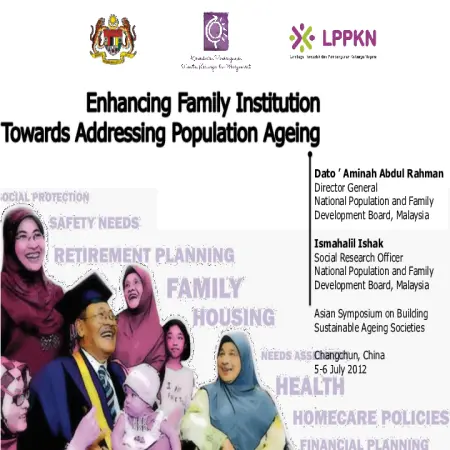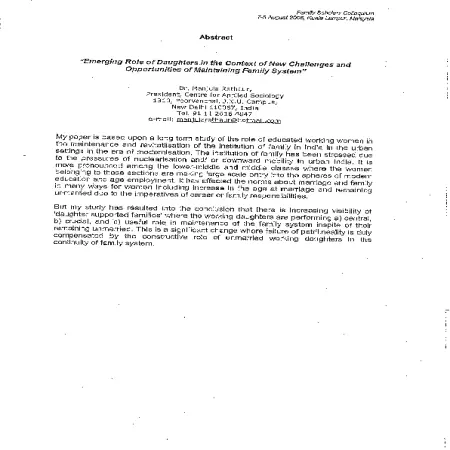Browse by Type
Results for Item type : "Conference or Workshop Item"
2016 (1)
|
|
Embedding the environment sustainability for the 2030 agenda in Malaysia
Item Type: Conference or Workshop Item
Editor:
Year: 00/00/2016
Abstract: The presentation will outline the rationale and overarching vision for embedding the environment in the SDGs. These are guided by four interlocking ideas: the environment is a prerequisite for socio-economic development; human health and wellbeing depends on good environmental quality; environment has intrinsic values; and finally, protecting the environment can be a new source of economic growth.
|
|
|
|
2013 (1)
|
|
Emerging patterns of Indonesia's international population mobility
Item Type: Conference or Workshop Item
Editor:
Year: 00/00/2013
Abstract: This paper attempts to examine some new trends in Indonesia’s international migration, both out-migration from and in-migration to Indonesia. More and more Indonesians have moved to other countries to pursue higher education, job opportunities and to settle down. On the other hand, rapid economic growth and the large consumer market have attracted increasing number of foreigners to work and invest in Indonesia. International population mobility is becoming a more important demographic process, with profound ramifications on economic development in Indonesia and other countries, in ASEAN and beyond.
|
|
|
|
2012 (1)
|
|
Enhancing family institution towards addressing population ageing
Item Type: Conference or Workshop Item
Editor:
Year: 00/00/2012
Abstract: Malaysia will be aged by the year 2030. The objective of National Policy for Older Persons, 2011 is to enhance the respect for and self-worth of the elderly in family, society and nation at the same time to develop the potential of the elderly so that they remain active and productive in national development and to create opportunities for them to continue to live independently and to encourage the establishment and the provision of specific facilities to ensure the care and protection of the elderly. The areas of Plan of Action: Promotion and Advocacy, Lifelong Learning, Safety and Protection, Governance and Shared Reasonability, Involvement and Intergenerational Solidarity, Research and Development.
|
|
|
|
2006 (1)
|
|
Emerging role of daughters in the context of new challenges and opportunities of maintaining family system
Item Type: Conference or Workshop Item
Editor:
Year: 00/00/2006
Abstract: My paper is based upon a long term study of the role of educated working women in the maintenance and revitatlisation of the institution of family in India in the urban settings in the era of modernisation. The institution of family has been stressed due to the pressures of nuclearisation and/or downward mobility in urban India. It is more pronounced among the lower-middle and middle classes where the women belonging to these sections are making large scale entry into the spheres of modern education and age employment. It has affected the norms about marriage and family in many ways for women including increase in the age at marriage and remaining unmarried due to the imperatives of career of family responsibilities. But my study has resulted into the conclusion that there is increasing visibility of 'daughter supported families' where the working daughters are performing a) central, b) crucial, and c) useful role in maintenance of the family system inspite of their remaining unmarried. This is a significant change where failure of patrilineality is duly compensated by the constructive role of unmarried working daughters in the continuity of family system.
|
|
|
|








